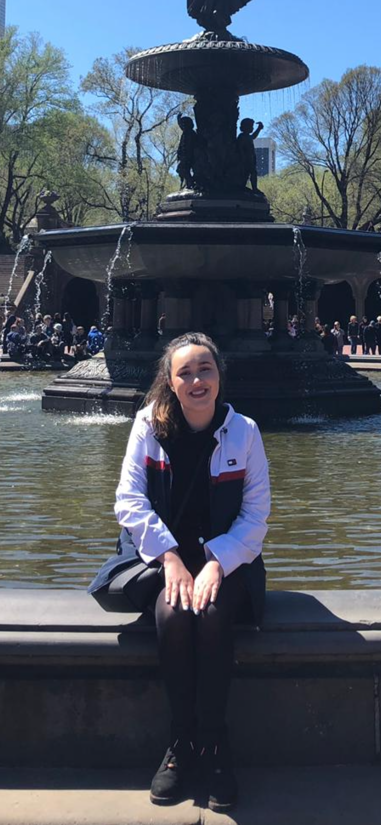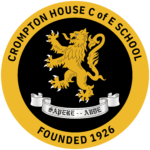English Literature
Entry Criteria
- Average Point Score: 4.5
- Grade 5 in both English Literature and English Language at GCSE
- Mathematics GCSE Grade 4
Examination Board
- AQA
Click here to visit the exam board course page for A Level English Literature.
Teaching Staff
- Mrs Smith
- Miss Pearson
- Mrs Holt
- Miss Landells
English Literature is a fantastic opportunity to:
- read an exciting and varied range of texts poetry, prose and drama
- learn about different literary theories and how to apply them
- choose your own texts to study for the NonExamination Component (Coursework)
- study a rigorous academic subject that is highly valued by universities
- learn how to analyse texts in great depth
- learn more about the historical contexts of different texts and authors
- learn how to communicate effectively, construct essays logically and use appropriate academic language
- develop your ability to present ideas orally
- learn independently and develop your organisation and self-discipline
This course will suit you if you enjoy reading different types of fiction including novels, poetry and plays. You will read texts independently and in class and you will find out more about how different social and historical periods impact on how texts are produced and received.
Many students study English Literature alongside subjects such as English Language, History, Philosophy and Ethics, Sociology, Psychology, Languages or Drama. However, it combines very effectively with most A Level subjects.
This course is excellent preparation for studying English Literature and/or Linguistics at university, and many students also go on to study or work in law, psychology, journalism or the theatre. However, there are a wide range of opportunities available to students of English Literature as it develops many of the skills that are highly valued by universities and employers.
What do our students say about English Literature?
My favourite thing about studying English Lit was reading and analysing different texts. Compared to many other A Levels, English Lit allows you to be creative and think up analytical viewpoints for yourself. My favourite part in lessons would be when we were studying a particular texts and we would talk and share what we thought about the text. That’s another thing that A Level English Lit is great about, because of the smaller class sizes it allows you to share more with the class and just allows for more personal and creative points of view rather than being told what to write. This is beneficial in the exams as you have more creative points to develop arguments with.
I wish someone had told at the start of Year 12 not to panic about my results initially. I did really well in my GCSE English Literature but then when I did my first assessment my grade had dropped. I wish someone had told me that it is completely normal, there is a jump between GCSEs and A Levels so initially when your results aren’t as high as you expect don’t stress and panic. Just read over where you went wrong, talk to your teacher and move forward. I assure you that with hard work and adaptation your grades will go back up to what you expect
My advice to a Year 12 studying English Lit would be to reread the texts often. I wish that when I had started the course initially I had pre-read some texts. I did this towards the end with the last texts of Othello and Regeneration and it really helped as when we studied it in class I already knew the plots and could point out some analytical viewpoints already. Also I made sure when I began revision to reread the texts as for me every time I read the texts I found new analytical points and became more familiar with the texts.
Another piece of advice to the new year 12 would be that organisation is key. Make sure you regularly organise your folders in order to stay on top of it. I had a file for each teacher and then used dividers to organise each topic within the course and regularly organised these so when it came to revision for exams it was clear where my work and notes were. I would also advise new students that in order to stay on top of work make to do lists of all the work that you need to complete over the course of the week in order of priority. Making to do lists really helped me manage my workload throughout A Levels and also made me feel accomplished as pieces of work were ticked off throughout the week.
Alongside English Lit I studied History and Sociology. I found that doing all 3 of my A Levels together was really helpful as they inter-linked. For example, in English Lit you have to mention context in your essays so it was helpful having studied History as I knew for example, what happened in WW1 when studying for my paper 2 exam. Sociology as well comes in to English Lit as you have similar theoretical views when studying literature for example, Marxist and Feminist. They also interlink as they are all essay subjects so as my essay writing strengthened in one subject it translated to the others.
After Sixth Form I want to study Criminology and Sociology at University. English Literature will help me with my degree as it has helped me to develop a more sophisticated writing style which will help as my degree will be very essay based. English Lit has also helped me become more analytical with my work.

Jess' study of English Literature has helped her develop her analytical skills.
My favourite thing about studying English Literature was the class discussions about the books and class reading, it felt like we had our own book club, and it made a change from writing all the time!
Looking back at my time in Sixth Form, I wish I had revised consistently over the two year course as there is a lot of content and knowledge needed. Because of this, I felt more overwhelmed during mock exams season as I had more content to remember than someone who has revised in chunks.
I would advise the new Year 12’s to make revision notes after every lesson as a recap and after every chapter of a book or poem as it will help you remember the content and keep it fresh in your mind which helps with revision. Making personal revision lists as well as class revision lists can help narrow down your revision based on your own strengths and weaknesses.
Also, essay structure is very important in A Level English Literature, comparing your essay to someone who has a higher mark and taking notes or reading Band 4/5 model essays can help with essay structure to boost your grade. Wider reading around a book or poem is also important as there are marks awarded for context and critiques.
In addition to English Literature, I studied Biology and Sociology and I am going to go on to either doing Biomedical or Bioveterinary Science at university. English Literature has helped me with my analytical skills, which ties in with Biology write ups and practicals as critical thinking is needed to draw conclusions. English Literature has also helped me be more succinct with my writing which is important in Biological essays. I was also able to write a good personal statement as you learn how to write in a sophisticated manner.




